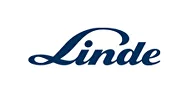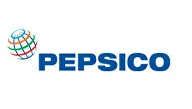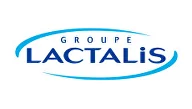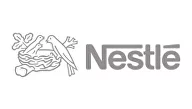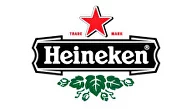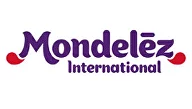Pasteurisers
We offer services for the implementation of a new or modernisation of an existing industrial pasteuriser for food production. Your problems will be solved by experts with more than 15 years of experience in the leading company AB InBev. We bring together the best process engineers, passionate about their work, with plant owners.

What is the problem with pasteurisation
Certain beverages and foods, such as beer, contain a large number of yeast microorganisms, so they cannot be stored for long without heat treatment.
Pasteurisation is necessary to prevent the active growth of fungi and lactic acid bacteria, which changes the taste and reduces the safety of the drink.
Heat treatment helps to extend the shelf life of the product.
During pasteurisation, the liquid is subjected to short-term heating to temperatures above 60 and below 100°C, and then quickly cooled. The main problem in this process is how to destroy microorganisms without losing the taste of beer. The “boiled” drink, like the one that has fermented quickly, will be returned to the manufacturer’s warehouse.
Any return of beer leads to losses:
- reputational – a decrease in consumer and partner confidence;
- commercial – losses from sales, fines for low-quality products;
- legal – claims for breach of contract, as well as claims from sanitary and regulatory authorities.
Gentle pasteurisation of a product has many nuances. The owner of a production facility wants to get equipment for pasteurisation that will ensure consistent quality of the beverage without a noticeable increase in cost.
The chief engineer expects the pasteuriser to be reliable and energy efficient. For a quality specialist, microbiological safety and the taste of the product after heat treatment are of paramount importance.
For a process engineer, the performance and adaptability of the equipment are important. He needs an industrial pasteuriser that meets the existing needs of the line and can be adapted to new recipes or production volumes.
All the problems and motives of production workers can be reduced to one question: “What model of equipment should I buy?”.
Types of industrial pasteurisers
In fact, there are only two types of pasteurisation and cooling plants:
Flow pasteuriser
It heats the product (liquid) itself as it passes through the heat exchanger. It is then held at the specified hot temperature for a certain amount of time. After that, the flow is directed to the regeneration and cooling section, where the liquid is cooled for further bottling.
Tunnel pasteuriser
It is used for heat treatment of products that have already been filled into cans or bottles.
But there are many modifications of pasteurisers for food, and hence the differences in the price of different models of equipment.
The machines differ in terms of performance. A 500 litre per hour pasteuriser is more expensive than a 300 litre pasteuriser or a 200 litre pasteuriser.
The equipment can have a different number of sections. The simplest models consist of regeneration and pasteurisation sections. In complex six-section devices, the cooler, separation outlet, homogenisation outlet, regeneration section, pasteurisation, and production of superheated water are separated. Some models are equipped with built-in CIP sinks.
Different modifications have differences in the types of heat exchangers: tubular or plate, and the number of pumps.
Pasteurisers also differ in the degree of automation: from a single-channel controller to a full-fledged industrial computer with recording and control of all pasteurisation parameters. The price of individual options, such as an automatic pressure maintenance unit or a flow meter, can make up a large part of the cost of the equipment.
We will help you to choose the right pasteuriser for your production without overpaying for unnecessary features.
Why can you trust us?
Viravix Engineering is an expert community of process engineers in food production. Our specialists have over 15 years of experience at AB InBev, where they rose from an ordinary employee to a zone expert responsible for 12 plants in different regions. We are known by name in the industry and talk about our work with each other.
We use the safety, quality and energy consumption standards of the best global practices of international companies in the design of equipment.
Our partner is Elaks, whose specialists have been engaged in turnkey industrial production automation for almost 30 years. They have completed projects for Nestlé, Wimm-Bill-Dann, and other major players in the food and pharmaceutical industries.
What do you get in cooperation with us?
These are not empty promises. We will confirm our qualifications and experience with the necessary documents and cases.
Possible solutions to improve the pasteurisation process
First, we will install the monitoring system and analyse the existing pasteurisation and filling process based on its data.
Without baseline data, it is difficult to make recommendations on how to improve the microbiological condition of the product.
Based on the results of the observation, we will propose possible solutions. What we can do:
- Analyse the reasons for poor washing of the device and develop further actions to improve the quality of washing.
- Install a new pasteuriser or upgrade an existing one to ensure high-quality product processing, increase productivity, and expand the possibilities of pasteurisation modes.
- Identify the causes of increased liquid losses and develop measures to reduce resource consumption.
- Automate the pasteurisation process.
- Install a system for monitoring pasteurisation processes and data archiving.
- Automate the pasteuriser cleaning programme.
- Optimise pasteurisation processes with possible replacement of units and software upgrades.
We will find out what you need from the list after studying the initial data about your production.
What will be the result?
Our experts love what they do. Let them get to work and they will provide you with
- reliable operation of the equipment for consistent quality of the final product;
- modernisation of the pasteuriser to automate the pasteurisation and washing processes;
- monitoring of set and real pasteurisation parameters;
- possibility to collect CO2 from the buffer tank;
- stable operation of pasteurisation equipment with minimal heat load to preserve the taste of beer;
- modernisation of the heat exchanger to increase the regeneration section to reduce energy consumption;
- installation of a monitoring system with the option of an HMI scheme for convenient process analysis and the ability to upload data to Excel;
- automatic performance control, depending on the volume in the buffer;
- installation of a liner unit with the ability to automatically switch between formats.
You will determine what you need in your brewery based on the results of the analysis. At least, you will know the bottlenecks and opportunities for improvement.
Your additional benefits
We will design, supply, install and commission the pasteuriser. In addition, we will train your specialists so that they are not afraid of new devices.
Any engineer knows: “The more complex the system, the easier it is to break.”
You can also get:
- Extended warranty for the equipment.
- The ability to purchase components at the same price as for Viravix, an engineering company.
- Performing installation work in-house to reduce project costs.
- Remote access unit (IBH Link IoT) for the ability to connect to the pasteuriser 24/7.
- Remote commissioning of equipment with responsibility for the result. In this case, you save on the cost of sending engineers on business trips.
Leave a request to Viravix Engineering in any convenient way, and our specialists will contact you. Or call us if you have any questions.
